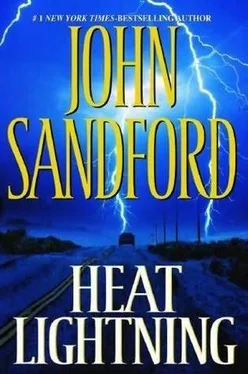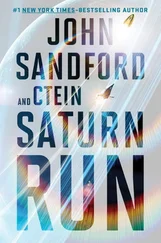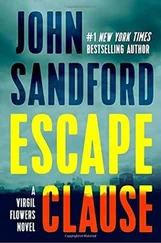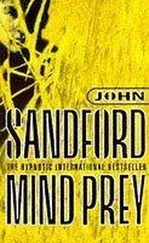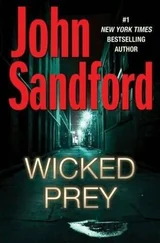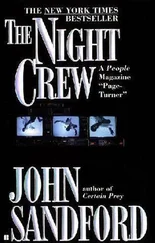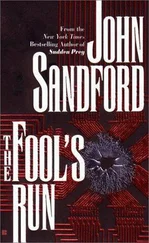“Not yet, but what difference would it make? There’s nobody to listen to it.”
“Mai’s still out there,” Virgil said.
“So yank it out-but go see Sinclair first.”
“OK.”
“Did that truck thing do any good?” Davenport asked. “You know, pretending you were still with the truck?”
“I think it killed three people,” Virgil said. “They bought the whole thing.”
“You are a shifty motherfucker,” Davenport said.
“Yeah, I know. I remind you of yourself when you were younger.”
“Not much younger,” Davenport said.
Virgil made a rude noise and they rolled through St. Paul to BCA headquarters, and Davenport dropped Virgil beside his truck. “The meeting with the Washington guys is in an hour, or an hour and fifteen minutes, so you don’t have much time,” Davenport said. “Do what you can.”
AT THE TRUCK, Virgil lay down beside the front fender, looked up at the transmitter. A couple of wires led into the turn signal box, and he yanked one of them out of the transmitter. That would kill it; creeped him out to think about the thing giving up Ray Bunton.
Ten minutes to Sinclair’s. He parked in the street, turned on the laptop recorder, slid it into the pack, put the envelope on top of it, threw the pack over his shoulder, and walked to Sinclair’s place.
He pushed the doorbell, and Sinclair answered immediately, as though he’d been waiting for it: “Who is it?”
“Virgil.”
The door buzzed and he went on through, and Sinclair was waiting at the open door to his apartment.
“What happened to Hoa?” he asked.
“Made it to Canada,” Virgil said.
Relief showed in Sinclair’s face. “I couldn’t help liking her,” he said. “What about the other guys?”
“Phem and Tai, whatever their real names are, are dead,” Virgil said. He was thinking of the recorder. “So’s another guy that I never met. Another guy got out. Either he’s wounded, or Mai is. We found a blood trail, but it was in Canada, and they had an exit route all set up. We called the Canadians with a description of the vehicle, but they haven’t seen it yet.”
“Phem and Tai. Not bad guys, actually, for a killer and a torturer,” Sinclair said.
“I’ll quote you when I write my article for the Atlantic,” Virgil said.
“Yeah, right. Fur ’n’ Feather is more like it… When did you get back?”
“Ten minutes ago,” Virgil said. “I talked to my boss on the phone, and he told me you were here.”
THEY’D MOVED through the apartment, talking, out to the porch. Virgil tossed his pack on the table, undid the quick-release buckles, pulled out the envelope of photographs, left the end of the laptop hanging out, one of the tiny camera lenses facing Sinclair.
He handed the envelope to Sinclair: “They left them for us. Deliberately, I’m sure.”
Sinclair slid them out of the envelope, thumbed through them, then looked at them carefully, one at a time. He looked up and said, “That’s bad-and they’re real. I’ve had some training in this stuff. If they’re not real, they’re better than anything we could do.”
“They’re real,” Virgil said. “We got some shots from the last guy they were looking for. Carl Knox. He took some right at the time of the shootings. The bodies look the same, the way they landed. No way to fake that.”
Sinclair leaned back and said, “What are you guys planning to do?” Virgil shrugged. “It’s not up to me. There’s a big meeting, forty-five minutes from now-I’ve got to go-with some guys from Washington.
I suspect we’re about to shovel a whole bunch of dirt over the whole thing.”
“That’s one way to handle it,” Sinclair said. “What about me?”
“Hard to avoid the fact that you were helping out,” Virgil said. “People already know… lots of cops, probably some newspeople. Gonna be hard to make it go away. I suspect what will happen is that you’ll wind up on trial in one of those intelligence courts, the secret-testimony ones, and then… what it is, is what it is.”
Sinclair bared his teeth. “I could get really fucked, if that happens,” he said.
Virgil spread his hands. “Shouldn’t have signed up with them.”
“There was pressure. I told you about my daughter,” Sinclair said. “They were gonna fuck me over with that whole thing about the agency. I’d lose my job at the university… I’d be cooked.”
“Shit happens,” Virgil said.
Sinclair grinned and said, “You’re a lot rougher than you look, Virgil. You look like some kind of rockabilly, straw-headed, woman-chasing country punk.”
Virgil said, “Thank you.”
“But you went and broke down the program, and shot a bunch of people up, and here you are, looking me in the face and telling me that I might be going to prison.”
Virgil stood up. “I gotta go. I wanted to tell you about Mai.”
Sinclair said, “Wait a minute. Sit down for two more minutes. Let me tell you what I know about this whole thing. Maybe we can work something out… You owe me, after I gave you Phem and Tai.”
“You knew you were giving them to me?”
“You knew the Virgil quote-I thought there was a good chance that you’d be smart enough to pick up on me.”
“Weird way to do it.”
“I needed something absolutely deniable.” Sinclair grinned at him. “You got the information, I got the deniability. Deniability is the Red Queen of American intelligence.”
VIRGIL PLAYED THE TAPE for Rose Marie Roux, for Davenport, and for Neil Mitford, the governor’s aide. Roux, who’d been a cop and later a prosecutor before she went into politics, said, “He’s willing to testify that Homeland Security-some officials at Homeland Security-cut this deal knowing that a bunch of people would be murdered.”
Virgil nodded.
Rose Marie tapped a yellow number two on her desktop, then looked at Mitford and asked, “The governor’s on the way?”
“He should be in the building if traffic isn’t too bad.” Mitford was another lawyer.
“Get down there and brief him. We’ve got to go.” Two Homeland Security people were in the conference room, waiting.
THE HOMELAND SECURITY guys looked like the security people that Warren had been bringing in, but with thinner necks. They were sleek, tanned, confident, smiling, gelled, and their neckties coordinated with both their suits and their eye color; one of them checked out Virgil’s cowboy boots and backpack when he came in and frowned, as if he suspected that he might not be talking to the BCA’s upper crust.
Rose Marie sat everybody down and introduced the two, James K. Cartwright and Morris Arenson, to the BCA agents. She said, “Virgil has just come back from a firefight up north. Three of the Vietnamese were killed, and two escaped into Canada. We are asking for Canadian assistance in tracking them down.”
Arenson threw back his head and said, “Ah, damnit.”
“I thought that would be good news,” Rose Marie said.
“Anytime things go international, they become harder to control,” Cartwright said. “Was one of the dead Viets a young woman?”
“No, that was Mai,” Virgil said. “Or Hoa. She and another guy got away.”
Cartwright looked around the table and said, “Thank God for small favors. Her family is right at the top of the totem pole in Hanoi.”
Davenport asked, “Whose side are you guys on, anyway? We’ve been-”
Before he could finish, the governor pushed through the door, smiling, trailed by Mitford. The governor said, “Glad I could make it. Glad I could make it.”
When they were introduced, Arenson looked at his colleague and then at Rose Marie and the governor and said, “I’d thought that we were keeping this on an Agency level.”
Читать дальше
